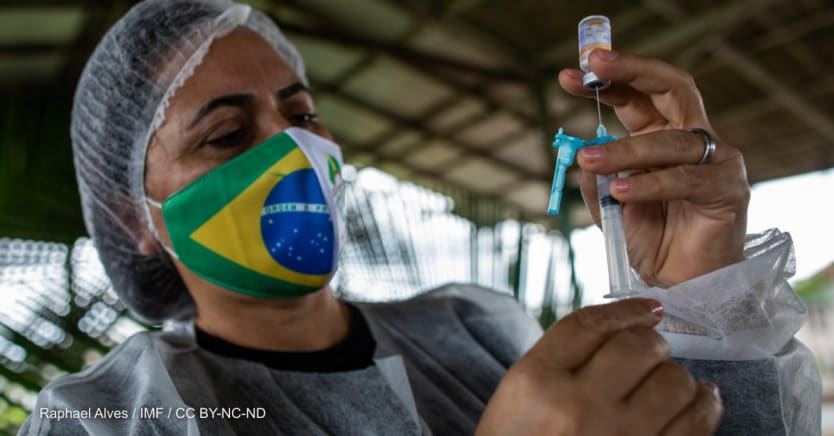
The international community needs to allocate $15 billion this year to fulfill unmet needs from the COVID-19 pandemic and then set aside $10 billion annually in future years so the world can engage in a “long-term fight” against pandemics, according to a paper released Tuesday by the International Monetary Fund.
The must-read weekly newsletter for exclusive global health news and insider insights.
“Overall, health security is economic security,” said Gita Gopinath, IMF’s first deputy managing director, in a statement. IMF estimates that global economic losses from COVID-19 alone will hit nearly $14 trillion.
“The international community should recognize that its pandemic financing addresses a systemic risk to the global economy,” Gopinath added. Ideally, the paper said, the money would be made available through grant financing.
Why it matters: IMF stressed that the COVID-19 pandemic is not over and that it is not clear how the situation will evolve, with the potential for dangerous new variants.
Policymakers need to move from crisis mode to developing a funding model for a “long-term fight,” the paper said. This would also mean recognizing what priorities were sidelined during the heat of COVID-19. Tuberculosis and malaria, for example, saw mortality rise as a secondary effect of the pandemic, the paper highlighted.
Vaccines not enough: Some 70% of donors’ grant financing for COVID-19 has gone to vaccine-related efforts, but IMF called for supporting a broader toolkit that includes testing, treatments, and strengthening health systems.
Still, over 100 countries are not on track to hit 70% vaccination rates by midyear, IMF said, criticizing the international community for failing to meet funding targets and ensure supplies.
Be purposeful: The fight against HIV led to positive gains for health systems in low- and middle-income countries, though these were often incidental, IMF noted. The paper called for current efforts aimed at tackling pandemics to intentionally target the improvement of systems for responding to future threats.

Search for articles
Most Read
- 1
- 2
- 3
- 4
- 5








